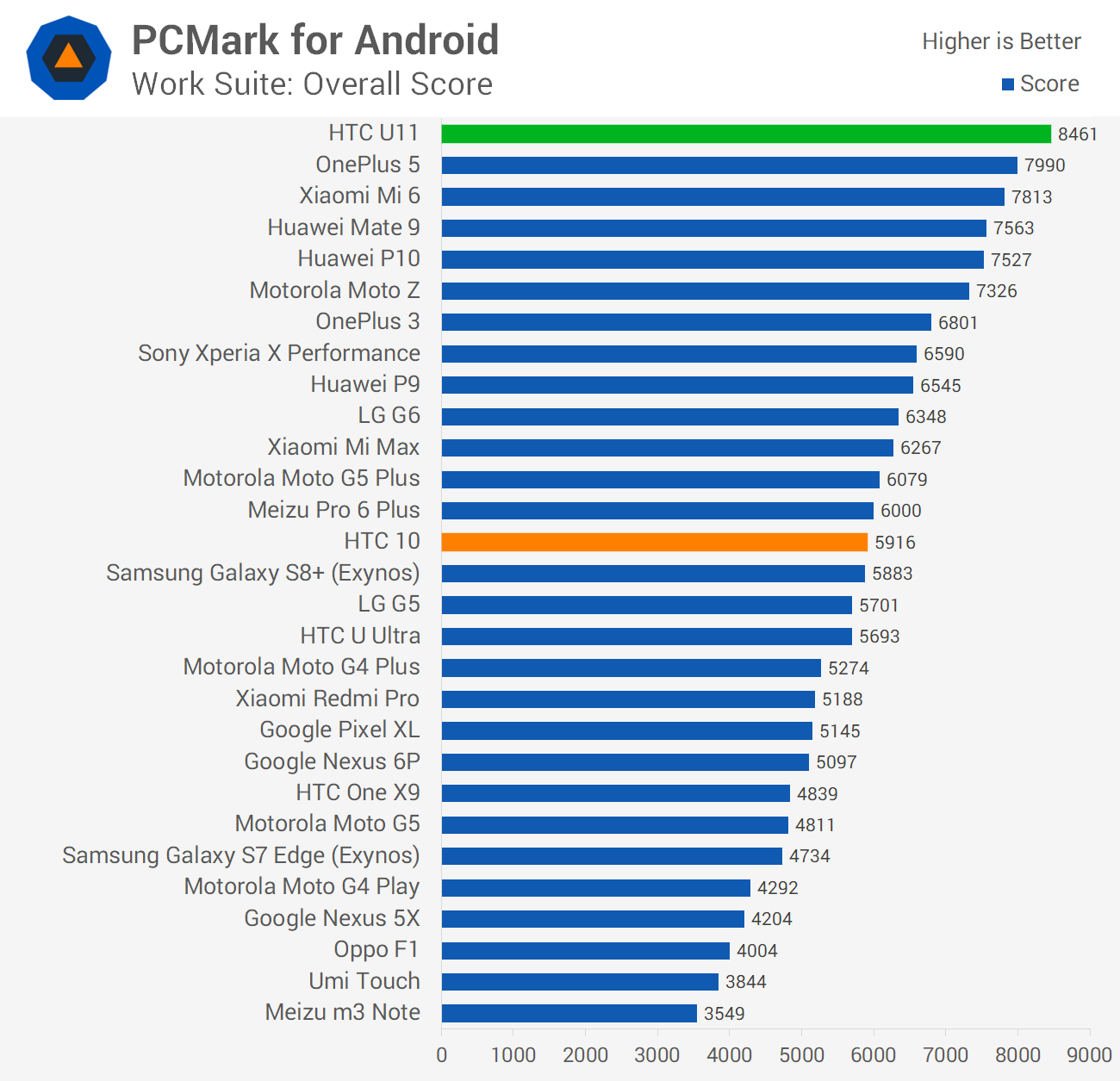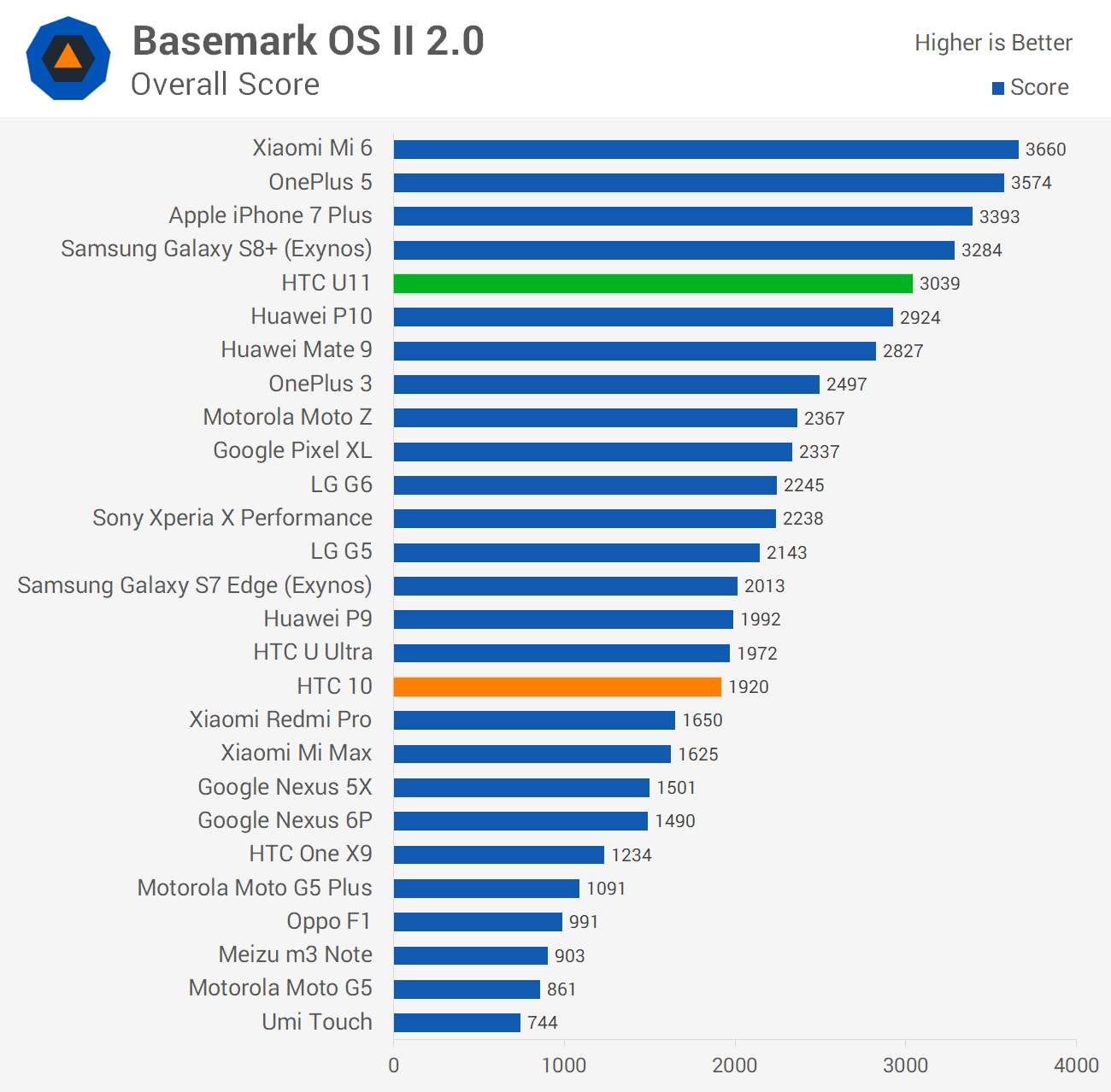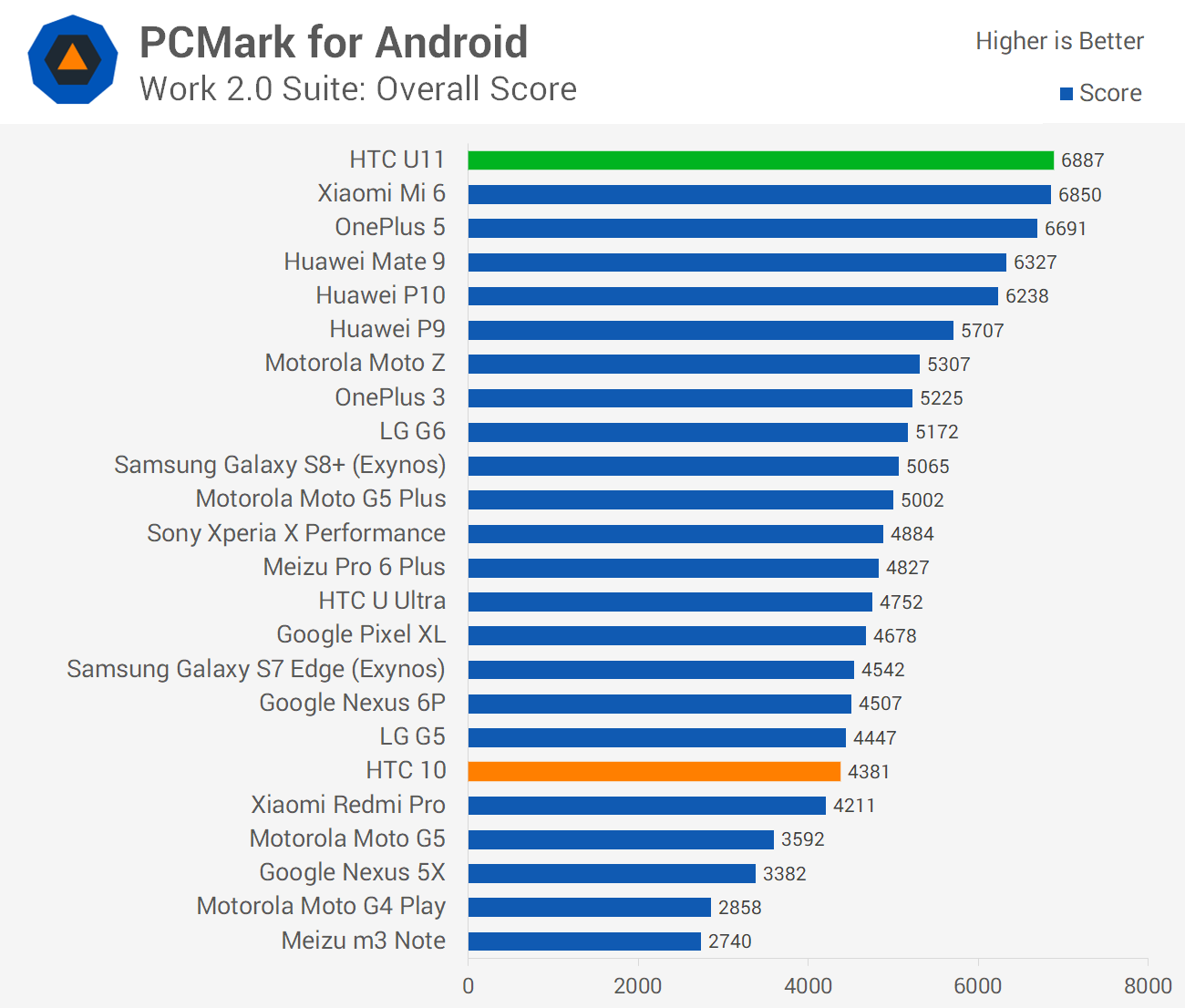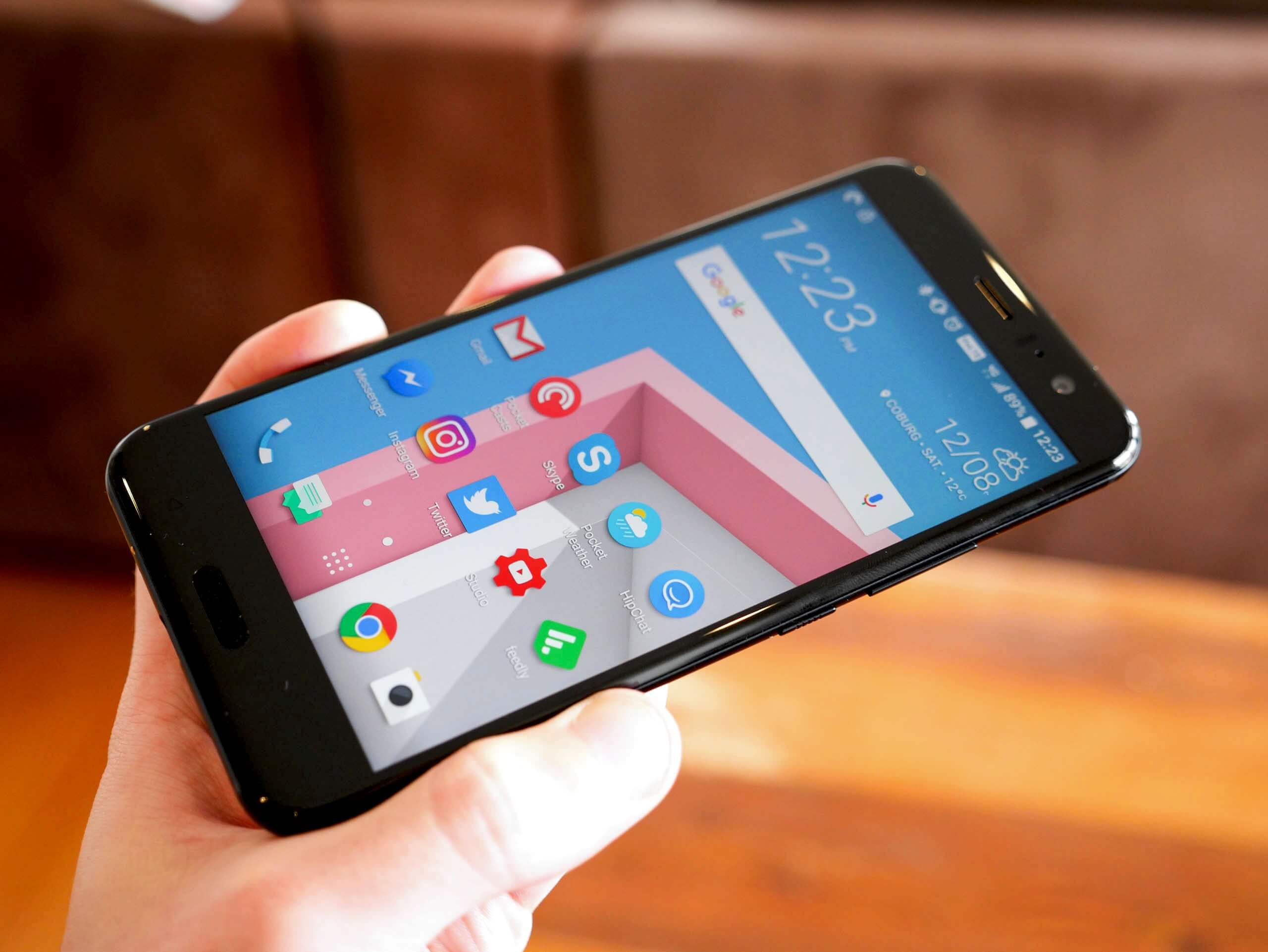System Performance
System performance isn't overly surprising. The HTC U11 uses a Qualcomm Snapdragon 835 SoC, which is an SoC we've covered in several devices before. It's an octa-core 10nm SoC with eight Kryo 280 CPU cores split into a 2.45 GHz performance cluster and a 1.9 GHz efficient cluster, each with four cores. There's also an Adreno 540 GPU clocked up to 710 MHz, and an LPDDR4X memory controller good for 29.8 GB/s of bandwidth.
HTC has made full use of the Snapdragon 835's integrated Snapdragon X16 modem for downstream communications through supporting Category 16 LTE down, aka. Gigabit LTE with up to 4xCA. We're not seeing 300 Mbps Category 13 upstream, with HTC instead opting for a 75 Mbps implementation. There are several different U11 variants out there, so make sure you get one that gives you full access to your network's capabilities.
As for other connectivity, the U11 supports Wi-Fi 802.11a/b/g/n/ac and Bluetooth 4.2, even though the Snapdragon 835 supports up to Bluetooth 5.0. NFC is included in this handset as you'd expect.
For RAM and storage, the U11 is available in two variants: 4GB of RAM with 64GB of storage; and 6GB of RAM with 128GB of storage. I received the former to review. There's also microSD card expandability, so even though you're getting a generous amount of on-board memory, you can slap in up to a 2TB microSD for more storage in the future.






Across our system benchmarks here, the HTC U11 performs as expected, falling within a few percent of other Snapdragon 835 devices. So what I've said about other S835 handsets also applies here. It's 31% faster than the LG G6, 24% faster than the Exynos Galaxy S8+, and 13% faster than the Huawei P10. These phones use the Snapdragon 821, Exynos 8895, and Kirin 960 respectively.
Those looking to upgrade from the HTC 10 will see 56 percent better CPU performance, which is a significant performance upgrade. The HTC 10 used the Qualcomm Snapdragon 820, so we're seeing a great generational improvement here.
